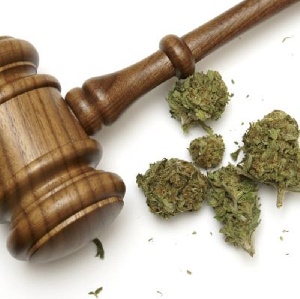When Ghana officially legalize recreational use of marijuana, I was one of those who received the news with great joy.
The Minister of Health was reported by Accra City News as saying, “Inasmuch as government takes the public health of Ghanaians very seriously, after extensive consultations with parties of different shades of ideological stance based on empirical data, we came to a fair conclusion that to effectively fight drug abuse in the country, we have to make the underground drug market unprofitable.
In other words, legalization of marijuana has become a necessary evil in checking the wanton abuse of the drug”.
The Minister’s remarks did not make sense to me. What truly mattered to me was that I did not have to hide what makes me “feel good” anymore. Free at last!
The first paragraph you just read is fictional. I couldn’t help it but to do so whilst listening to a panellist at a mental health programme argue for legalization of marijuana based on his subjective experience of the drug. He isn’t the first. Several notable persons have added their voice to the slowly evolving campaign as well.
The usefulness of marijuana is multifaceted, thus its economic prospects to the country cannot be overemphasized. This is the pro-marijuana’s first point on his polemic latch. The second, especially when confronted by public health concerns, is that we can’t effectively manage what we openly loathe. If we discourage public smoking of marijuana, we encourage private smoking which portends a greater danger.
However a plethora of experimental research designs downplay generalized “feel good” effects of marijuana. Whilst the cause-effect relationship between marijuana and human health (physical and mental) remain contentious in research labs, the drugs impact, real and bloody devastating, can be felt. A meta-analysis of marijuana studies from 1993-2013 (20 years) undertaken by Professor Wayne Hall, Director of the Center for Youth Substance Abuse Research at the University of Queensland observed the following:
1. Adolescents who use the drug frequently are twice as likely as their nonuser peers to drop out of school;
2. Likely to experience cognitive impairment and psychoses as adults;
3. Suffer heart problems;
4. Regular users double their risk of having hallucinations, delusions and distorted thinking;
A recent report by the National Academies of Sciences, Engineering and Medicine chaired by Dr Marie McCormick, Professor of Pediatrics at Harvard Medical School, buttressed the earlier study.
The report highlighted only a single positive use of marijuana – pain relief. Only one. And that was even on medical grounds. In respect of health risks recreational marijuana use poses? Five. Cancer. Asthma and other chronic respiratory problems. Mental health problems.
Injury or death. Substance abuse disorders. This was another longitudinal study which reviewed over 10,000 independent studies on marijuana and arrived a conclusion substantially similar to Hall’s.
What exactly will happen when Ghana legalizes marijuana?
According to Ghana’s Mental Health Authority, about four million Ghanaians (out of 28 million) are already suffering from mild to severe mental illness. From this number, over 650,000 are suffering from severe mental disorders. Ghana has about 600 Psychiatric Nurses and 13 practicing Psychiatrists.
This means each Psychiatric Nurse will have to handle 6,667 patients and each Psychiatrist 307,692 patients. Assuming we have superhuman at the Psychiatric hospitals in Ghana to handle these cases, what happens to our brothers and sisters in Northern part of the country who do not have public Psychiatric hospitals?
Several longitudinal studies have established a strong positive correlation between regular marijuana use and mental health crisis. And considering the Nurse-patient and Psychiatrist-patient ratios, and asymmetrical access to mental health facilities in the Southern and Northern parts of the country, we won’t be able to manage escalated mental health crisis.
Also, Ghana’s population is very young; accounts for about 20% of the total population (5.6million) comprising old adolescents (15-19 years) and young adults (20-24 years). It has been established that the adolescent brain is “very sensitive” to marijuana and other related drugs and can “lead to many long-term harmful outcomes”, according to a paper published in the Lancet Psychiatry Journal.
Considering the extreme hardships young Ghanaians endure especially those from economically disadvantaged backgrounds, easy or ‘regulated’ access to marijuana and other related drugs can worsen their circumstances and jeopardize their limited routes to success.
Currently, the underground market is profiting from the country’s refusal to legalize recreational use of marijuana. Young people are being drawn to the drug due to peer pressure and conformity norms among cult-like fraternities. Mental health crisis still remains. And this is a reasonable statement to make.
But at least, the status quo will not escalate. Our health facilities are unable to handle existing complications of marijuana users and religious organizations get involved at some point to facilitate the recovery and rehab of some users.
The fact that recreational use of marijuana is proscribed in itself can discourage experimentation. Collective social condemnation of an act can be powerful. We also have to be careful in taking risks, the consequences of which we can’t manage.
Opinions of Wednesday, 17 January 2018
Columnist: Ernest Armah















